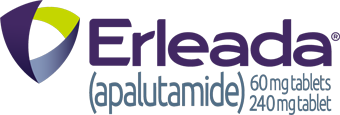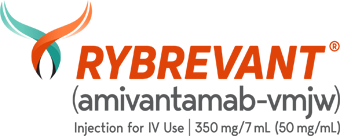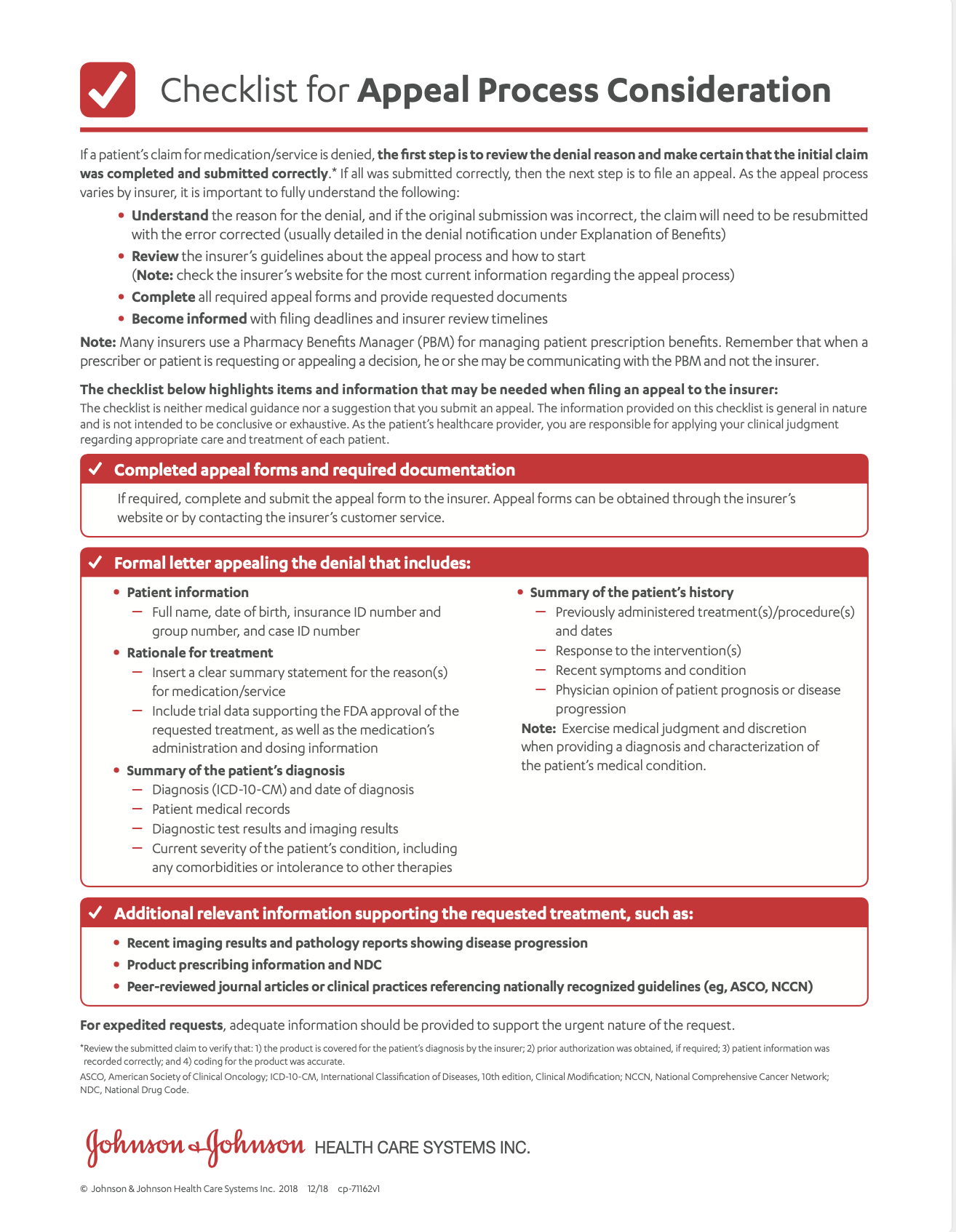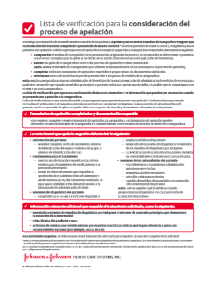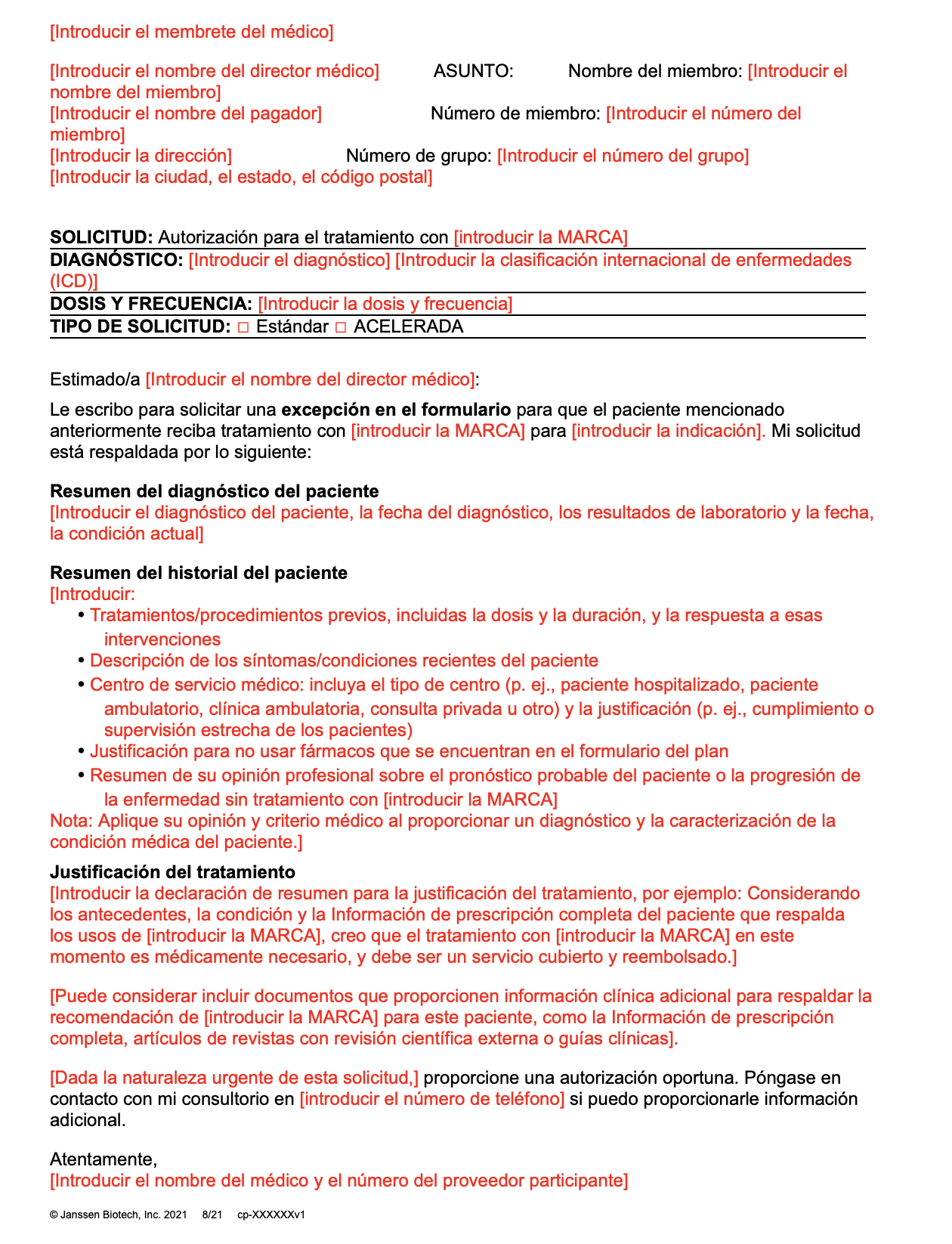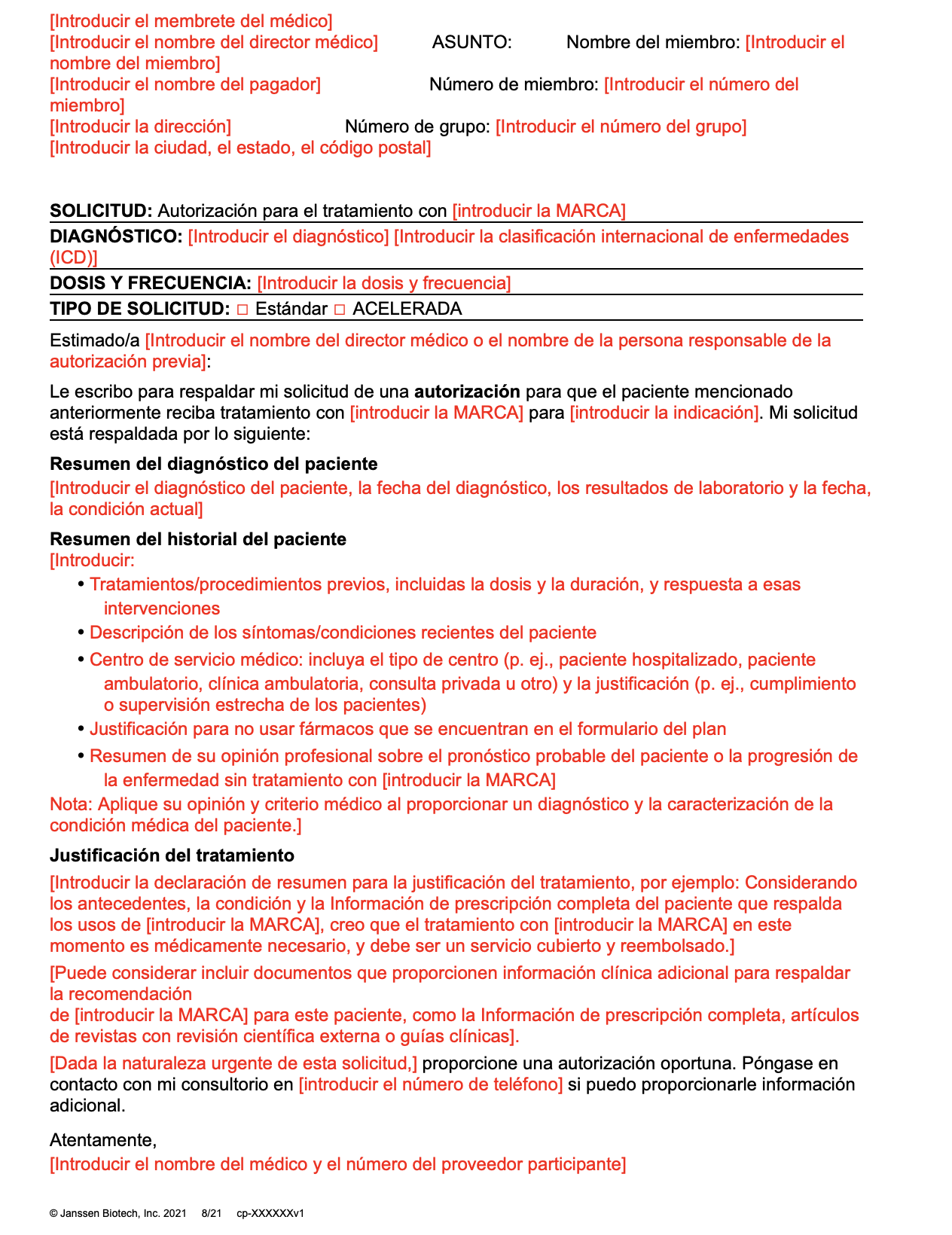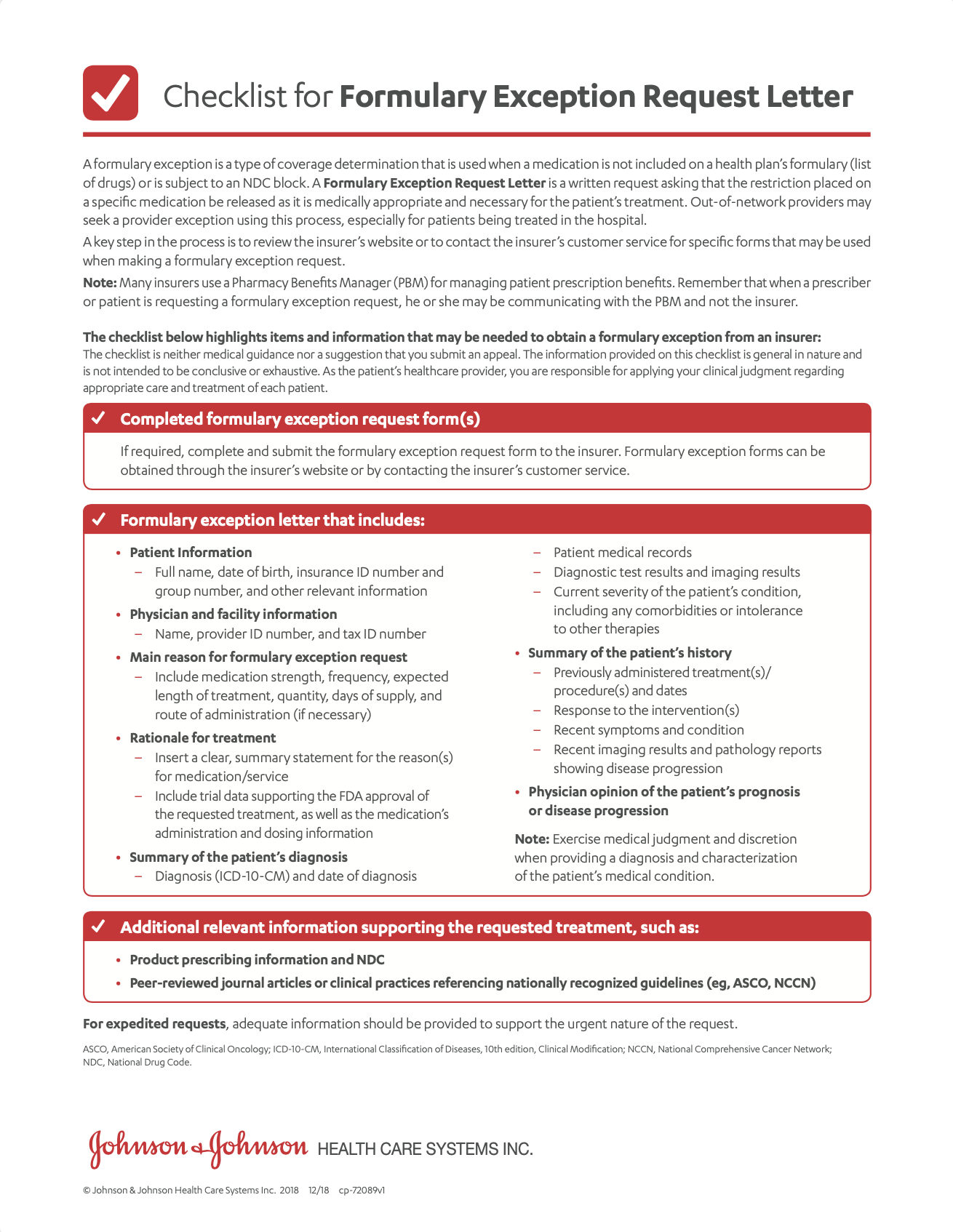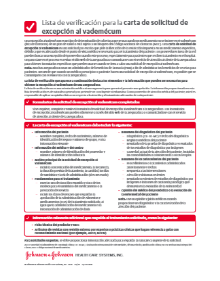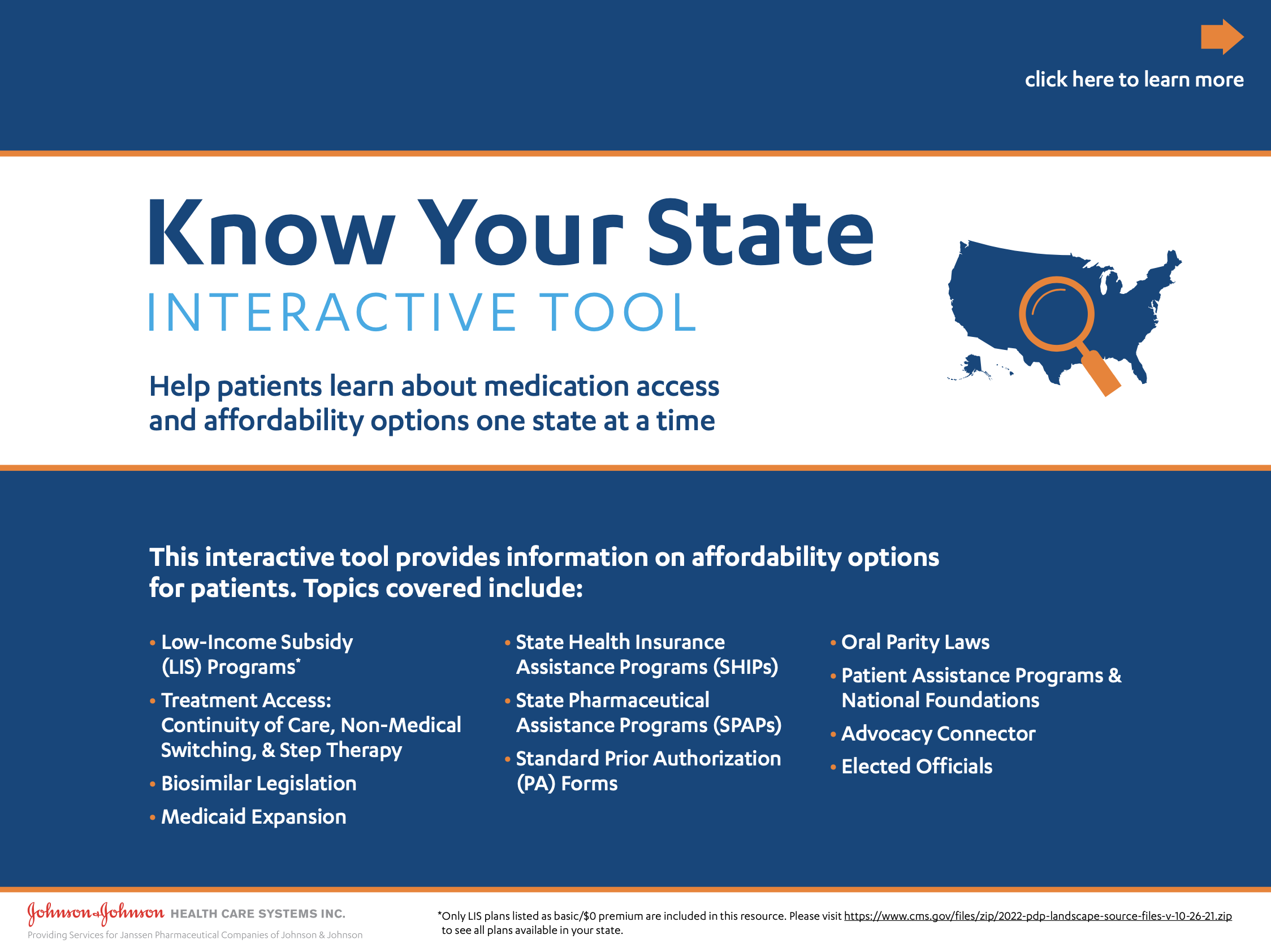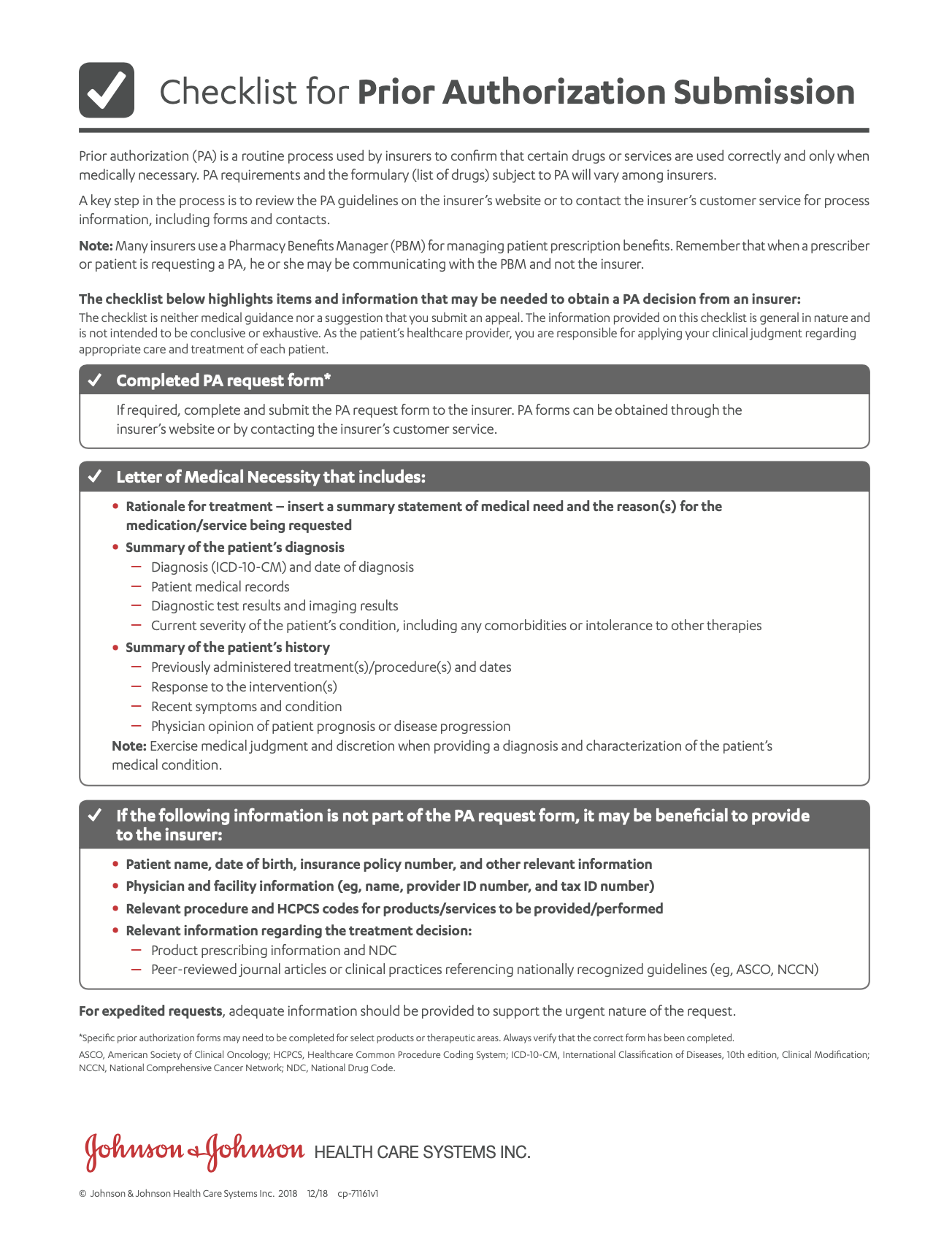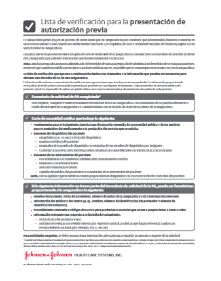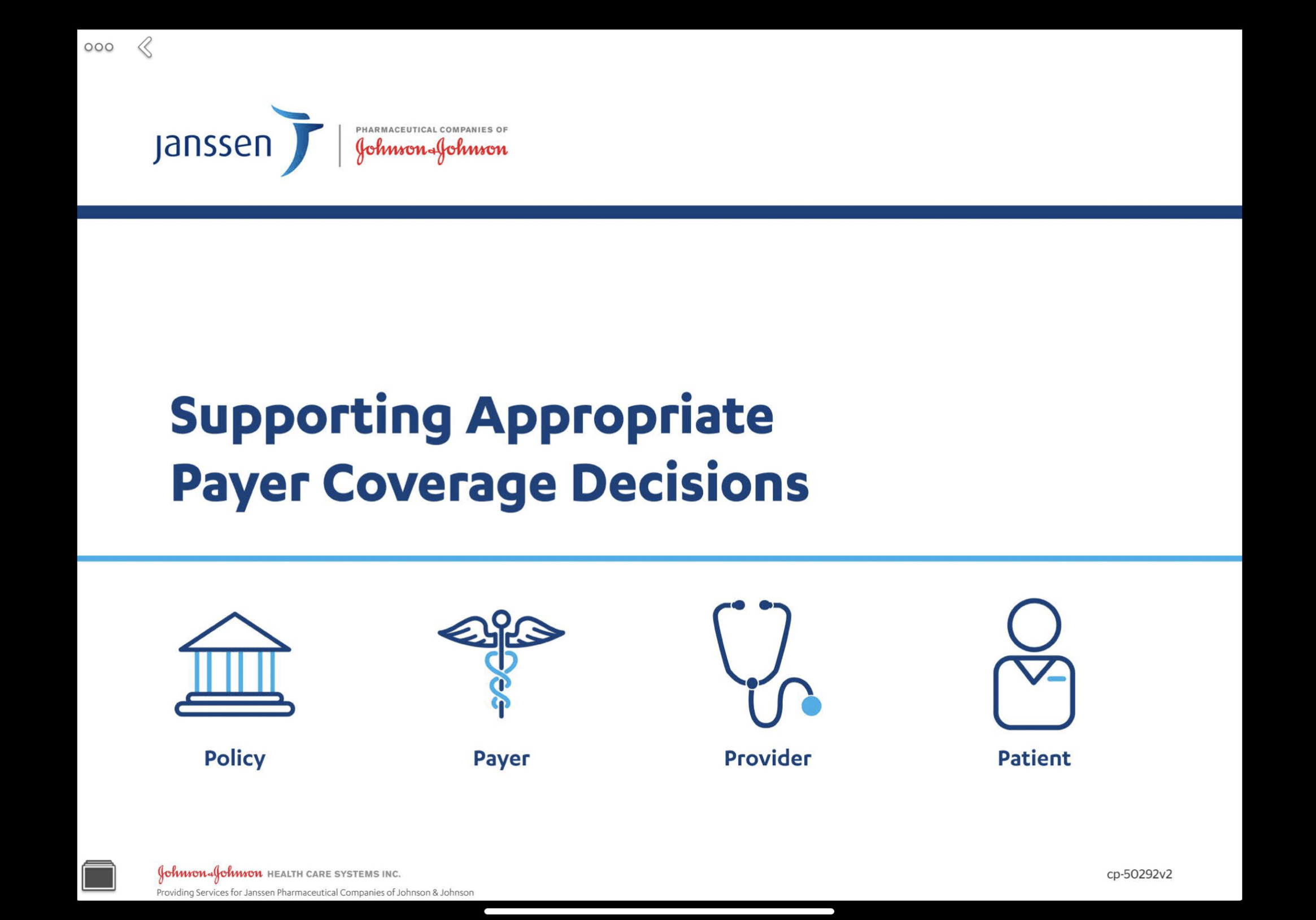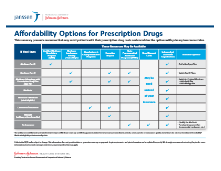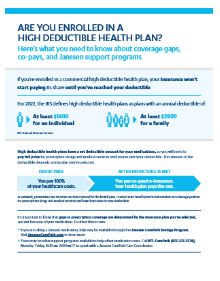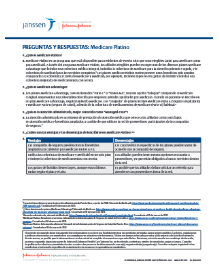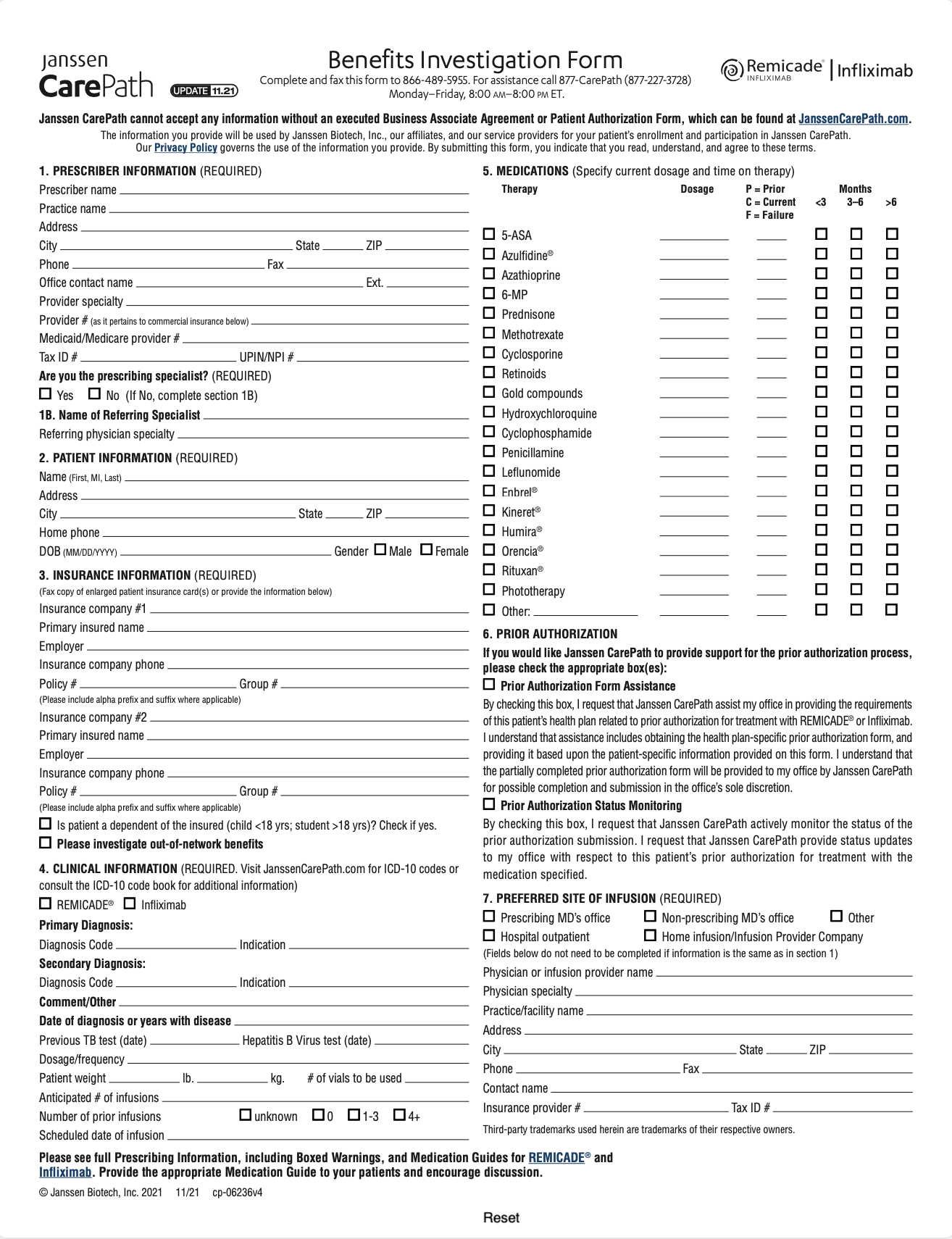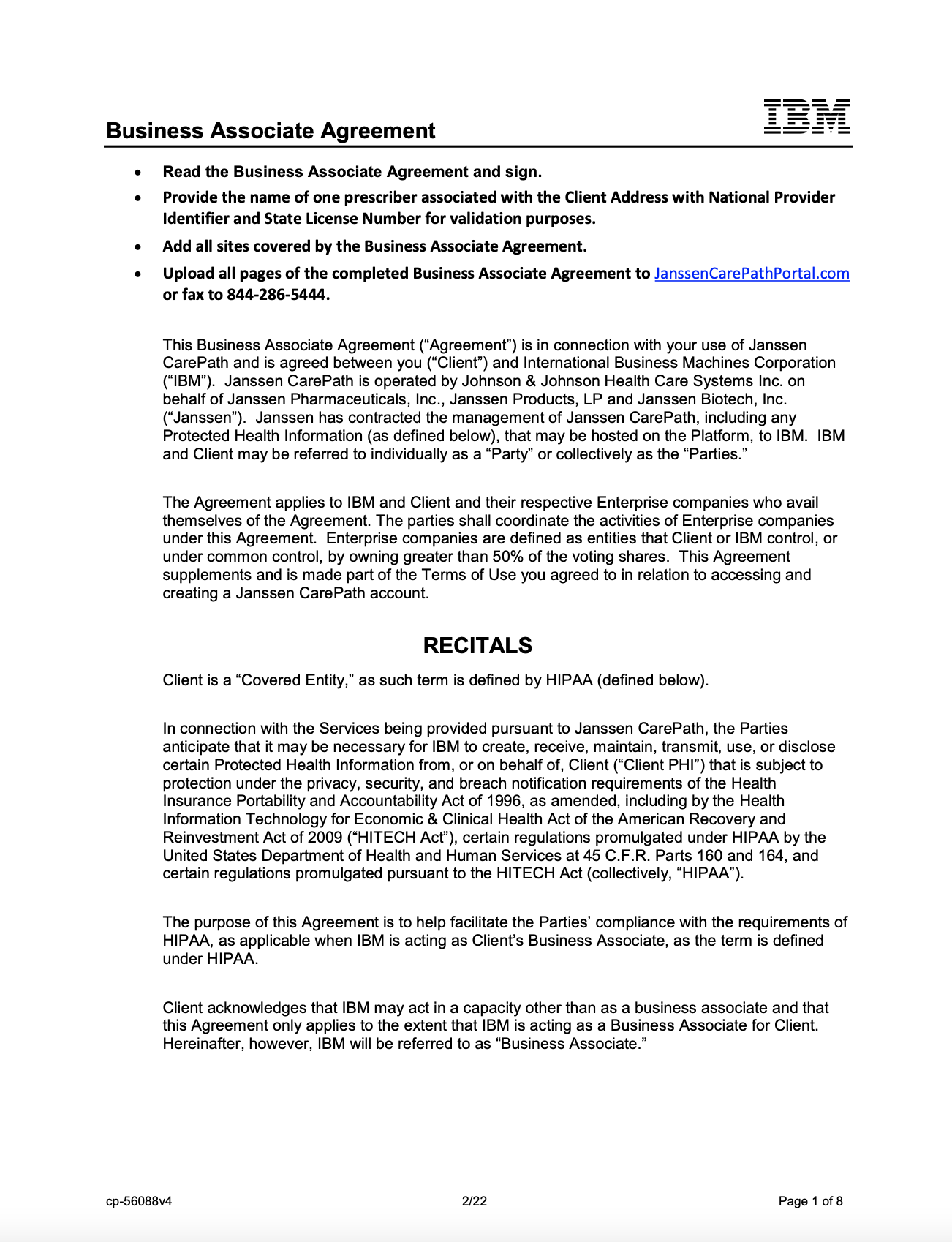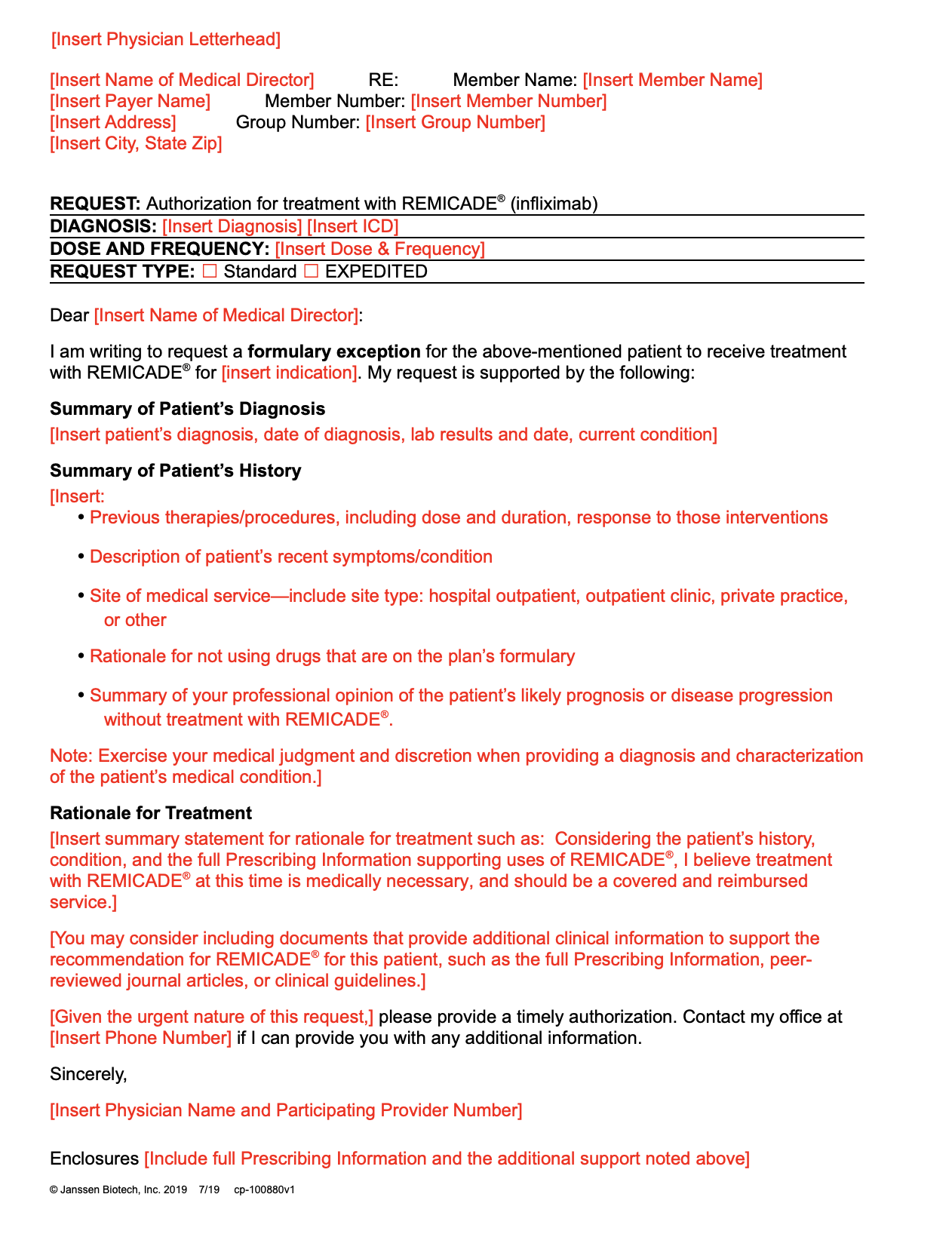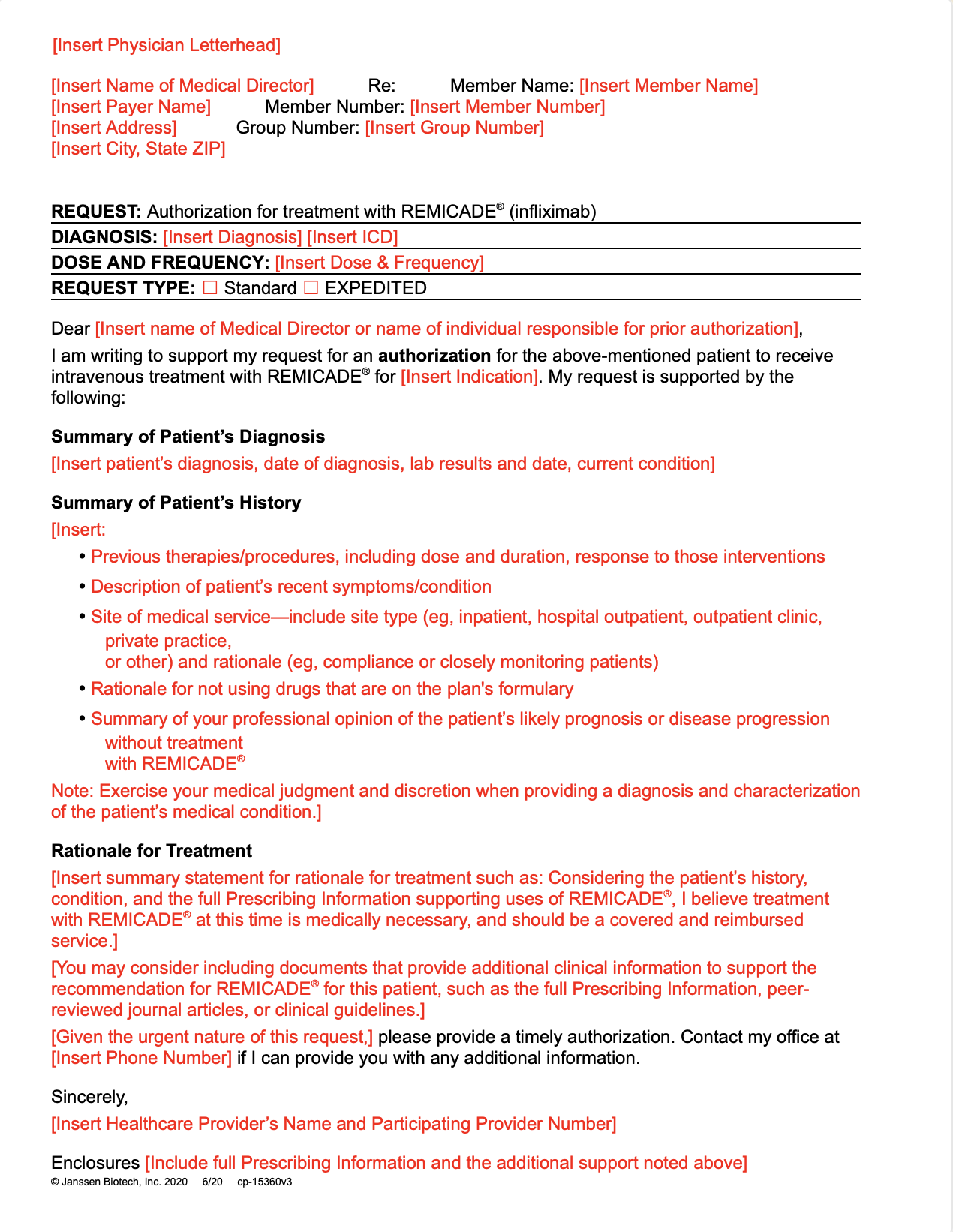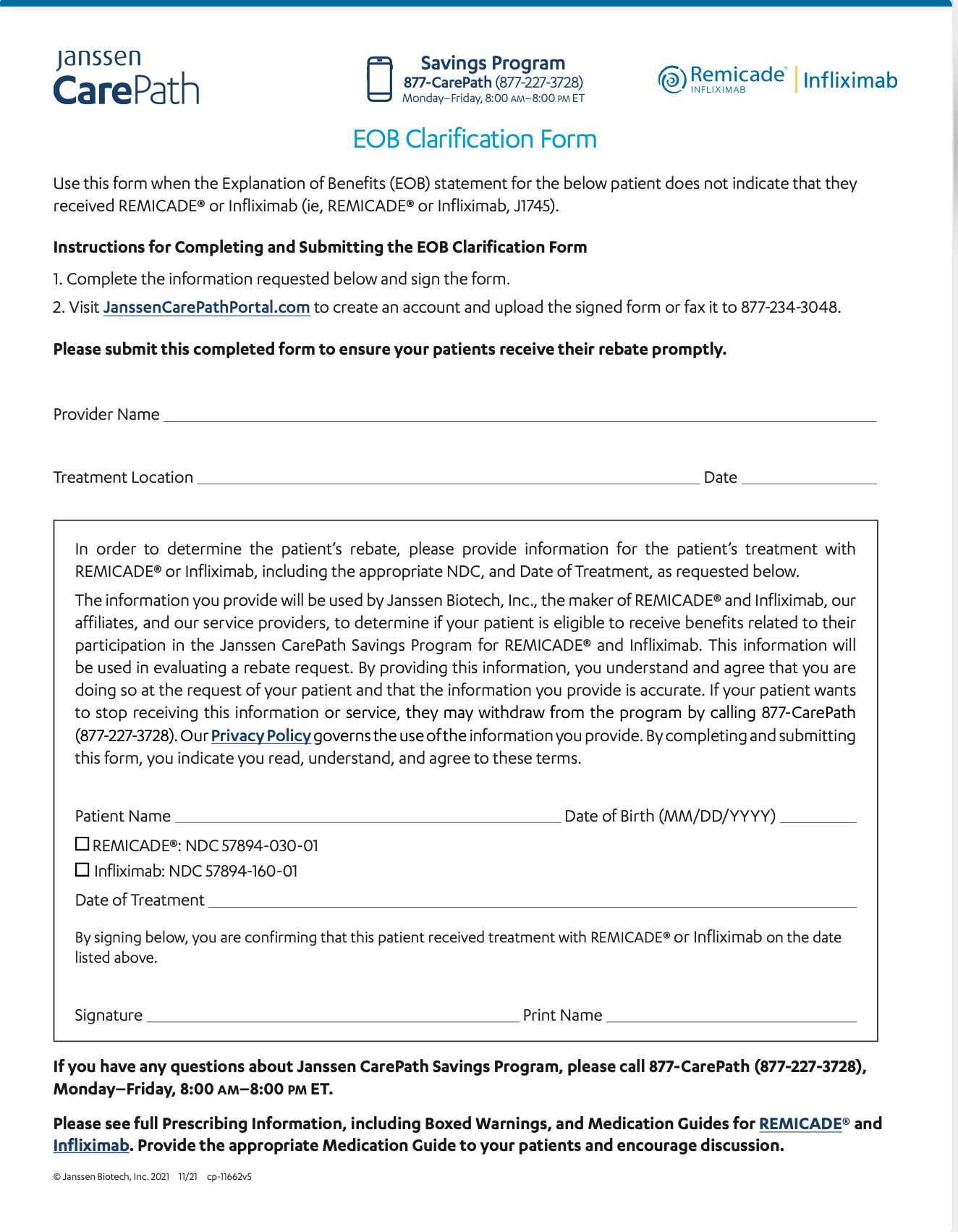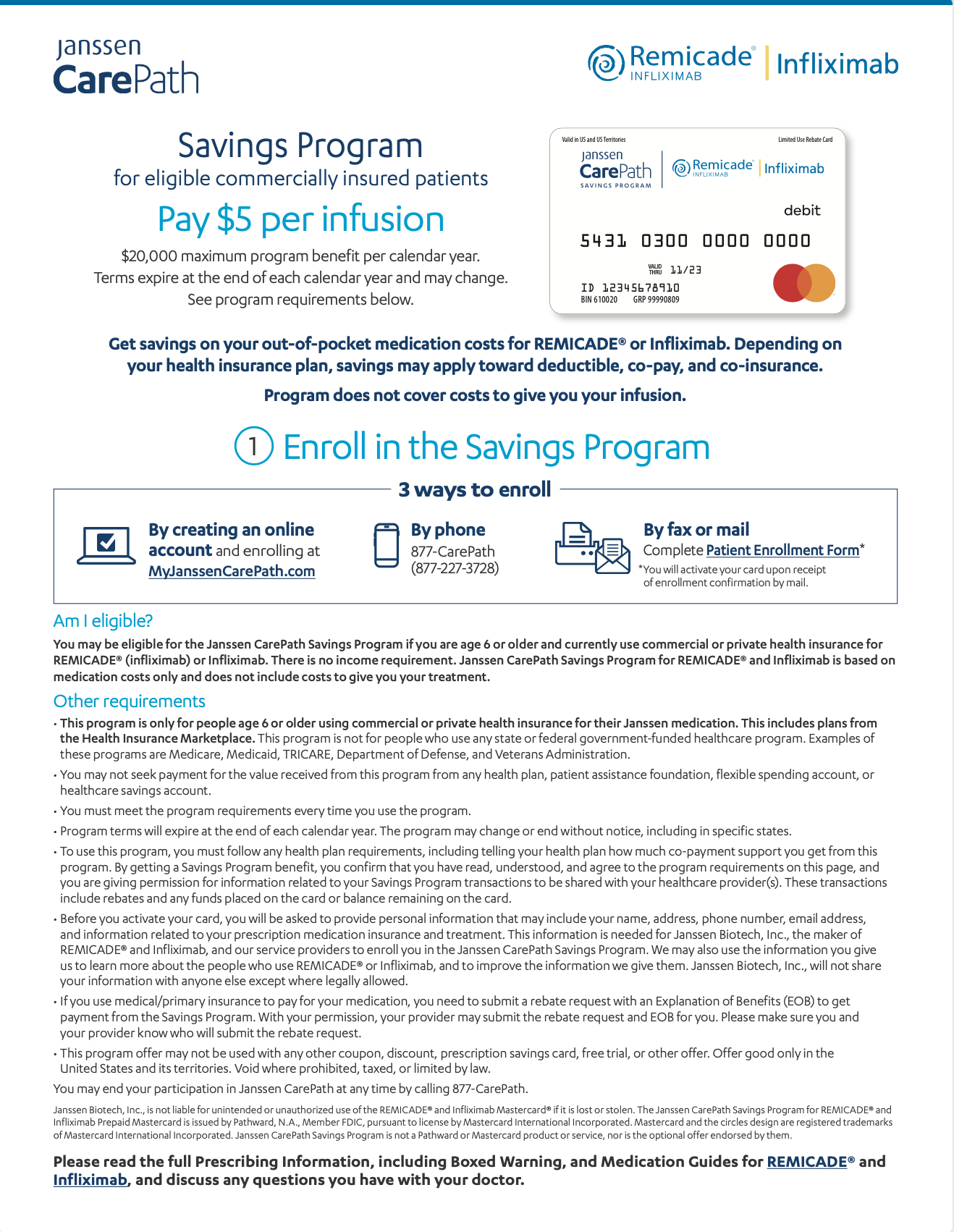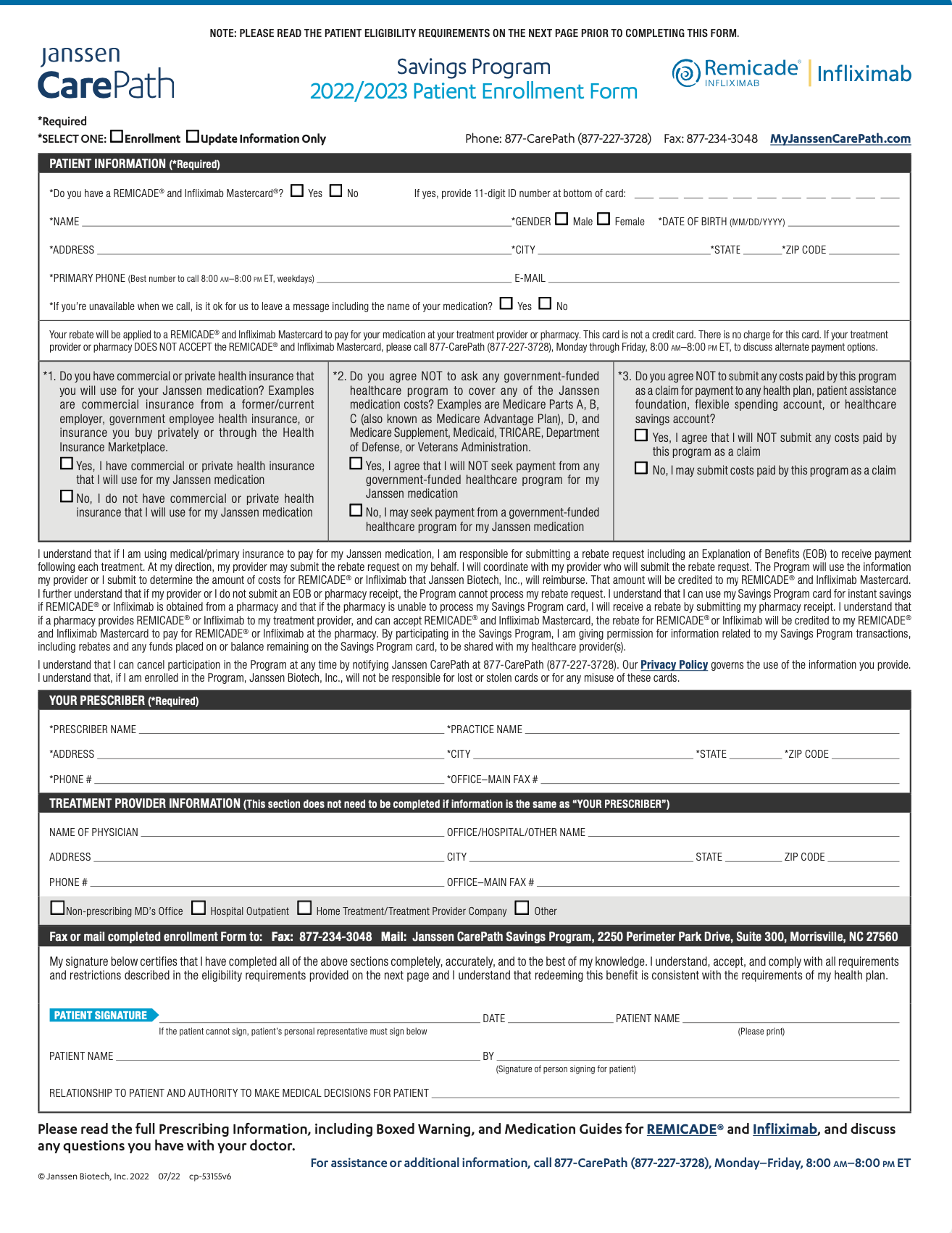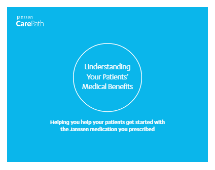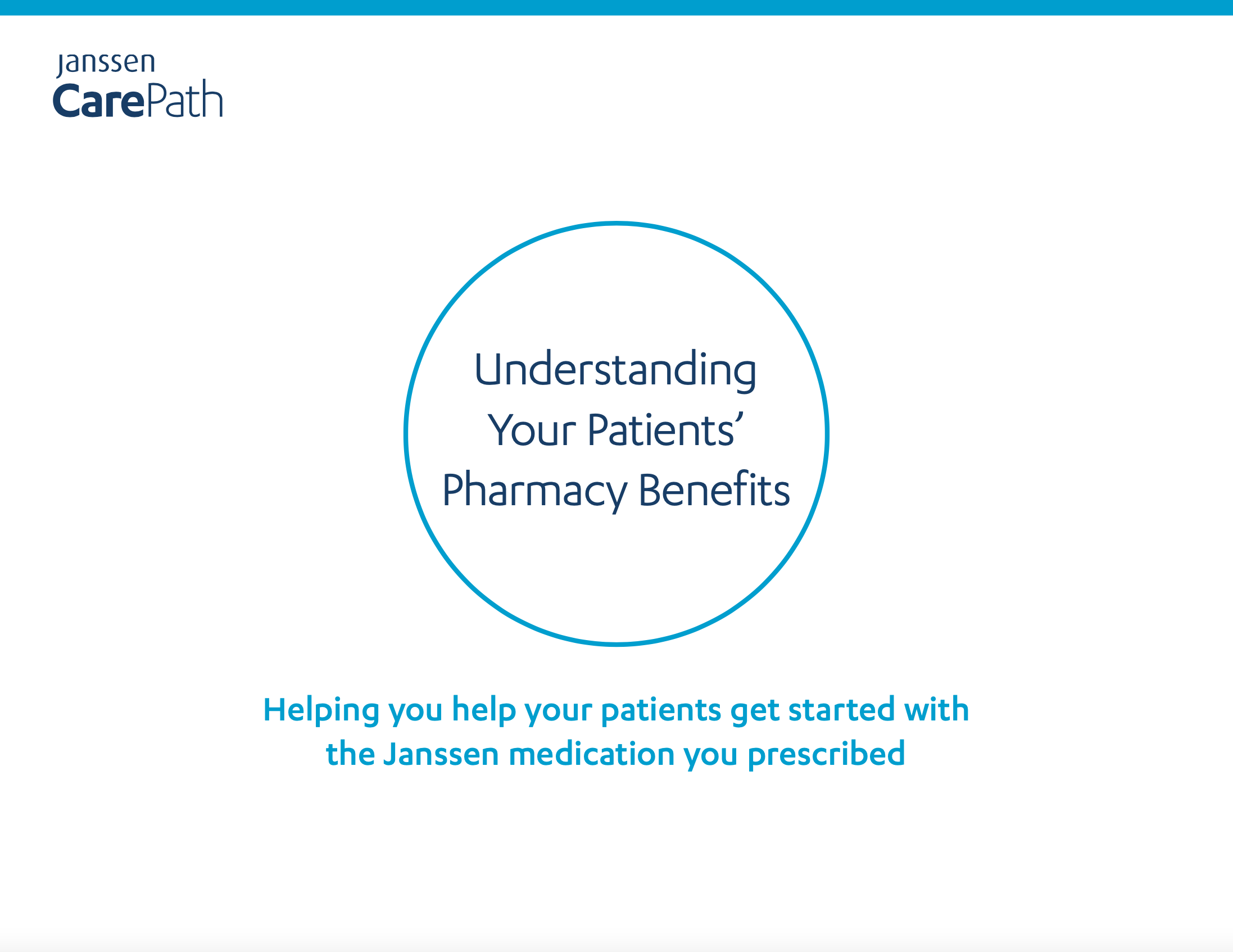Help Your Patients Start and Stay on REMICADE®
- Benefits Investigation & Enrollment FormA way to find out if REMICADE® is covered by the patient's insurance plan, including requirements for coverage or prior authorization, any out-of-pocket costs, and approved pharmacies.
- Benefits Investigation & Prescription Form for GastroenterologyA way to find out if REMICADE® is covered by the patient's insurance plan, including requirements for coverage or prior authorization, any out-of-pocket costs, and approved pharmacies.
- Benefits Investigation Form for Janssen IVA way to find out if REMICADE® is covered by the patient's insurance plan, including requirements for coverage or prior authorization, any out-of-pocket costs, and approved pharmacies.
- Billing Guide
- Business Associate AgreementComplete a Business Associate Agreement for your practice only once. No individual patient authorizations are required.
- Janssen CarePath Resource GuideA comprehensive summary of support tools for your office to help patients start and stay on treatment.
- Letter of ExceptionA template that you can fill out and submit to a patient’s health insurance provider asking them to cover a medication that is not on formulary.
- Letter of Medical NecessityA template that you can fill out and submit to a patient’s health insurance provider. You may use it to explain why REMICADE® is medically necessary for your patient.
- Patient Account Overview
- Patient Affordability OptionsDiscover options that can make REMICADE® more affordable for your patients.
- Patient Authorization FormIndividual patient form for offices without a Business Associate Agreement.
Patient Authorization Form (en español) - Patient Authorization Form (en español)Individual patient form for offices without a Business Associate Agreement.
- Savings Program Assignment of Benefits FormA form the patient can submit that allows Janssen CarePath Savings Program to reimburse the provider directly.
- Savings Program EOB Clarification FormUse this form when the Explanation of Benefits (EOB) statement does not indicate that the patient received REMICADE®.
- Savings Program OverviewEligible patients using commercial or private insurance can save on out-of-pocket costs for REMICADE®.
- Savings Program Patient Enrollment FormFax or mail this completed form to enroll your patient in the Savings Program for REMICADE®.
- Savings Program Rebate FormA form the patient can submit if the pharmacy isn’t able to process the Savings Program card or for a medical benefit rebate.
- Specialty Distributors
- Verification of Benefits Guide (Medical)A guide to understanding the Verification of Benefits for your patient’s medical benefits.
- Verification of Benefits Guide (Pharmacy)A guide to understanding the Verification of Benefits for your patient’s pharmacy benefits.

Help Your Patients Start and Stay on REMICADE®
Janssen CarePath Patient Account
Your patients and their caregivers can create an online account at MyJanssenCarePath.com where they can learn about their insurance coverage. They can also:
- Enroll in the Janssen CarePath Savings Program
- Manage their benefits
- Sign up for treatment reminders
- Find support throughout their treatment journey
Care Coordination
Janssen CarePath gives your patients one-on-one support through our Care Coordinators. Our Care Coordinators will work closely with you and your patients to provide the support you direct and additional support that your patients may need.
Specialty Distributors/Pharmacies
Janssen CarePath can connect you with alternative ways to access REMICADE®. Find a specialty distributor authorized to sell REMICADE® directly to your office.
Janssen CarePath Care Coordinators can also:
- Identify pharmacies to allow you to access REMICADE® without direct purchase or billing
- Investigate payers for potential third-party assignment of patients’ insurance benefits options, both pharmacy and major medical
- Provide a listing of third-party pharmacy providers for shipment and billing of REMICADE®
To learn more, please call a Janssen CarePath Care Coordinator at 877-CarePath (877-227-3728), Monday–Friday, 8:00 AM to 8:00 PM ET. Multilingual phone support is available.
Infusion Site Locator
Utilize the search capabilities of 2infuse.com to help you locate an infusion site convenient to your patient’s home or office. Searchable by city or ZIP code, this helpful site provides detailed search results organized by driving distance. This website also includes valuable information about the infusion sites such as business hours, insurance plans accepted, and medications infused.
Find an infusion center.
Are you an infusion center?
Register to list with 2infuse.com
Janssen Nurse Support
Even after you’ve spoken to your patient about infusion treatment with REMICADE®, they may still have questions. Janssen Nurse Support* can help answer their questions about the infusion process and provide more information about how to prepare for their infusion and what they may expect during the infusion process.
Connect your patients with Janssen Nurse Support at 877-CarePath (877-227-3728), available Monday–Friday, 9:00 AM to 8:00 PM ET. At all other times, a nurse will typically return their call in 15 minutes.
*Janssen Nurse Support is limited to education for patients about their Janssen therapy, its administration, and/or their disease. It is intended to supplement a patient's understanding of their therapy, and is not intended to provide medical advice, replace a treatment plan from the patient's doctor or nurse, provide case management services, or serve as a reason to prescribe.
Emergency Outreach Services
In case of a natural disaster in which your office or infusion center is unable to provide treatment, a Janssen CarePath Care Coordinator can help ensure your patients have continued access to treatment. To enroll in this service, patients just need to call Janssen CarePath at 877-CarePath (877-227-3728), Monday–Friday, 8:00 AM to 8:00 PM ET.
Infusion Video
This video walks patients through the steps of the REMICADE® infusion process — before, during, and after treatment — and explains what to expect during the infusion.
Education and Tools
Additional education and tools for patients to use in managing their treatment and condition can be found at Remicade.com:
- Tips on getting the most out of each office visit and organizing their treatment plan
- Information to help patients better prepare for each infusion visit
- Stories from other patients
Internet Resources for Your Patients
|
There are many useful resources available online that may help your patients understand and manage their treatment with REMICADE® and their diseases. You may find the websites listed here helpful as referrals in educating your patients about their condition. The links provided here are for informational purposes only. No endorsement or sponsorship is implied. |
REMICADE® Patient Website
|
This website contains additional information about treatment with REMICADE®. On this website, patients can also get helpful information about their condition. |
Arthritis Foundation
|
The mission of the Arthritis Foundation is to improve lives through leadership in the prevention, control, and cure of arthritis and related diseases. This website includes education and online community resources for people with arthritis and their families. |
Arthritis Today
|
The online home of the Arthritis Foundation’s “Arthritis Today” magazine is a great source of tips and information for people living with arthritis. |
CreakyJoints
|
CreakyJoints provides treatment information, advice from professionals, and public forums for people living with arthritis to share their experiences. |
Crohn's & Colitis Foundation of America
|
The Crohn's & Colitis Foundation of America is a non-profit, volunteer-driven organization dedicated to finding the cure for Crohn's disease and ulcerative colitis. The website contains medical information, news, and events about digestive diseases. |
National Psoriasis Foundation
|
The National Psoriasis Foundation (NPF) is a non-profit organization with a mission to drive efforts to cure psoriatic disease and improve the lives of those affected. |
Spondylitis Association of America
|
The Spondylitis Association of America is the first and largest resource for people affected by spondylitis. The website’s efforts help to advance education, research, and treatment for ankylosing spondylitis (AS) and related diseases. This site includes information and support for patients with AS and their families. |
Call a Janssen CarePath Care Coordinator at 877-CarePath (877-227-3728), Monday−Friday, 8:00 AM to 8:00 PM ET. Multilingual phone support available.
Sign up or log in to the Provider Portal at JanssenCarePathPortal.com where you can request and review benefits investigations, enroll eligible patients in the Janssen CarePath Savings Program, and view their Savings Program transactions.


